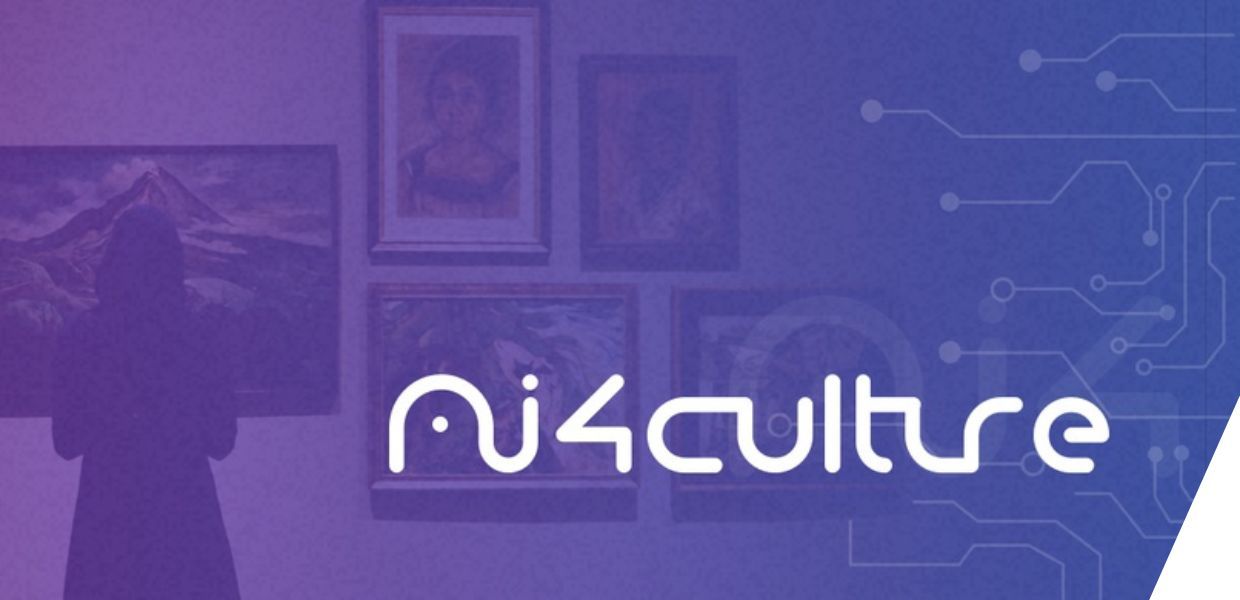AI4Culture is a data space supporting project which is working to build an online capacity-building hub for the application of artificial intelligence technologies in the cultural heritage sector. As part of the project, we are excited to announce a new series of workshops designed to explore the latest advancements in artificial intelligence and their applications in cultural heritage.
Each session will delve into critical topics such as multilingual text recognition, machine-generated subtitles, automated translations, semantic linking and image analysis. Participants will have the opportunity to engage with cutting-edge research and develop practical skills that can be applied to preserving and enriching cultural assets.
The workshops are set to take place online throughout the month of October, and are led by experts and researchers who are at the forefront of AI applications in cultural heritage. Attendees will benefit from hands-on experience and insights into how AI technologies can transform the way we understand, manage and disseminate cultural information. Whether you are a professional in the field, a researcher, or simply interested in the intersection of technology and culture, these workshops offer a unique opportunity to enhance your knowledge and contribute to the future of cultural heritage preservation.
Learn more about the workshops below and register for the ones you find more useful for you and your institution. Join us in this exciting journey into AI and culture!
Workshop 1: Multilingual text recognition in scanned documents
This workshop will be held on 9 October 2024 from 14:00 to 17:00 CET. Organised by CrossLang and the Austrian Institute of Technology, it focuses on the use of OCR tools, specifically OCCAM and Transcribathon.eu, to create and validate transcriptions of scanned documents. Participants will learn how to upload transcriptions to a repository and display them on the AI4Culture platform. The workshop will also include practical exercises to guide attendees through the process of translating their transcriptions, making them accessible in multiple languages. Register now.
Workshop 2: Multilingual subtitles generation and validation
This workshop will take place on 15 October 2024 from 11:00 to 13:00 CET. Hosted by Translated and FBK, this event will introduce participants to the Subbit! platform and the Subtitling AI Pipeline for automatically generating and revising subtitles in various languages. Through hands-on exercises, attendees will apply their knowledge by subtitling their own videos. Register now.
Workshop 3: Machine Translation for multilingual cultural heritage metadata
This workshop will be held on 22 October 2024, from 11:00 to 13:00 CET, hosted by Pangeanic SLP. This session will introduce PECAT, an online tool that enhances automated metadata translations by allowing expert review and editing. Participants will explore PECAT's main features and learn how to use them through practical exercises. The workshop will cover workflows for post-editing projects, project validation, and best practices for cleaning machine translation data. Register now.
Workshop 4: Semantic linking in textual descriptions
This workshop will take place on 16 October 2024, from 11:00 to 13:00 CET, organised by NTUA. It is addressed to cultural heritage professionals, aggregators and data providers who are familiar with cultural heritage metadata and wish to improve their quality, as well as people with a technical background. Participants will be introduced to the SAGE (Semantically-Aware Graphs with Enrichments) tool, which automates and streamlines the metadata enrichment process through semantic linking. Attendees will explore the tool’s key features, participate in practical exercises, and learn best practices for enhancing metadata. Register now.
Workshop 5: Image analysis
This workshop will be held on 30 October 2024, from 14:00 to 16:00 CET, organised by Datable. This session focuses on using open-source image analysis tools, combined with the use of CrowdHeritage and MINT, to automatically analyse images. Participants will learn how to integrate the results of the image analysis into their metadata records, as well as how to review and annotate the tool's outputs. Register now.
Future plans
These workshops will culminate in a series of Hackathons hosted by KU Leuven from 18 to 20 February 2025, bringing together students and professionals in cultural heritage to collaborate, either online or in person, using AI tools and cultural heritage datasets creatively. Stay tuned for more info on our LinkedIn and X channels, and on our project page.




